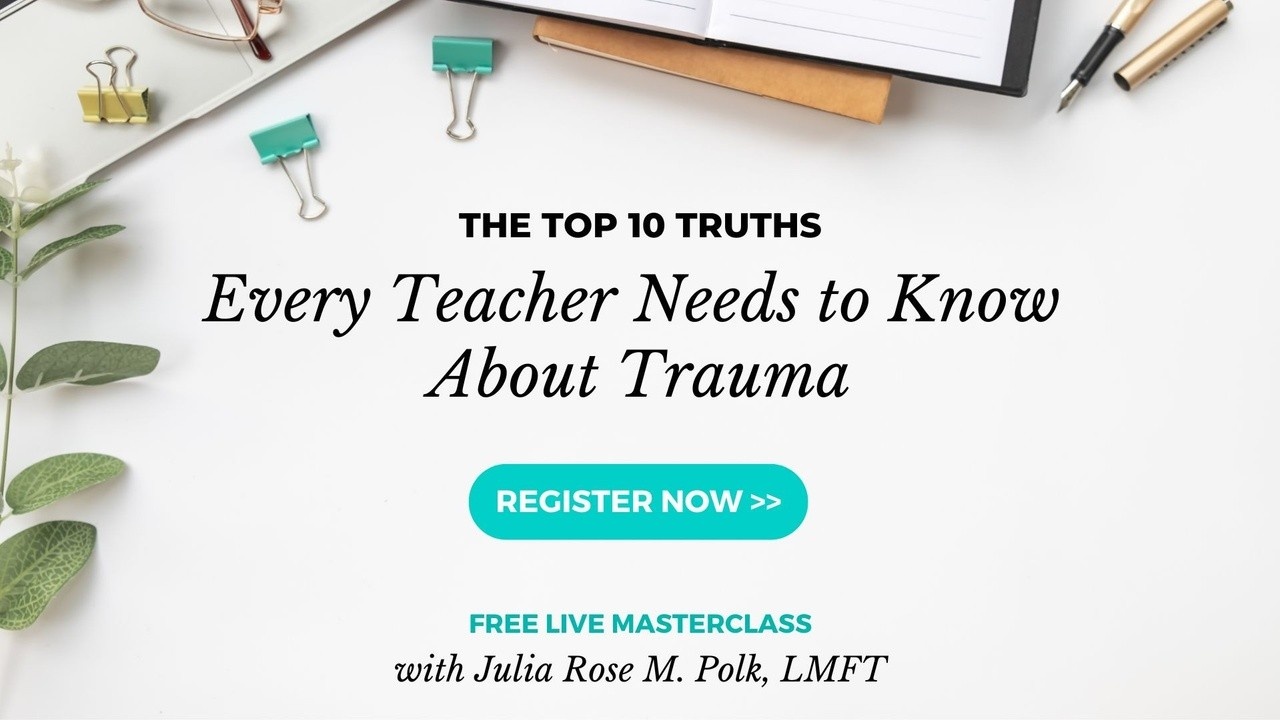Can we talk about childhood trauma for a sec? More specifically… How it's impacting your students' learning and behavior in the classroom? The reason I bring this up is that before the global pandemic, childhood trauma was already at epidemic-level proportions. That was before Covid... (Yeah, I know.) Since the pandemic, we can estimate that those numbers have skyrocketed. What does this mean for teachers? Well, on one hand you've got more children walking into your classroom under the invisible cloak of trauma, which often presents itself in the form of the classic culprits: behavioral issues, learning difficulties, dis-engagement, non-responsiveness, etc. On the other hand, you've got a body of educators who are expected to magically know how to deal with these complex cases after one or two trainings on the matter. Yeah, it doesn't make sense to me either... And it's time to put an end to that ;-) I want you to feel CLEAR in understanding childhood trauma, PREPARED in knowing how to respond effectively to struggling students, and CONFIDENT in yourself that you are equipped to do so. That's why I've packaged this all together in my free masterclass for teachers: The Top 10 Truths Every Teacher Needs to Know About Trauma: My Pandemic-Essential Crash Course for Teachers about how stress can impact a child's brain and behavior, and what YOU can do to support your students - and yourselves - in the classroom. 
In this powerful training, I'll walk you through: - Why every educator needs to be "trauma-informed" (especially since the pandemic). Whether you are teaching in a high-poverty neighborhood or the most privileged suburb you can think of - you won't want to miss this.
- The key differences between "resilience" and "vulnerability," and the 3 main ingredients for each outcome. If you've ever thought "all children are inherently resilient," you'll appreciate this breakdown of what actually creates resiliency (and, of course, it's opposite).
- The two most common mis-diagnoses of childhood trauma (and how this can impair our responses to these students.)
- Two things you can do TODAY to start building trauma-responsive classroom for you and your students.
Pick the masterclass that best fits your schedule (I'm offering multiple times). But keep in mind: I'm only offering this webinar for one week only! So here’s the deal… If you’re willing to invest just 60 minutes to get FULLY up to speed on the most essential components of being a trauma-responsive teacher... I promise to reward your energy and presence with only the latest science and most effective approaches that will have you standing with your shoulders back and feeling assured in yourself during even the most stressful of student interactions. Sound good? Can’t wait to see you on the masterclass! - Julia Rose Julia Rose M. Polk, LMFT Founder/President, Trauma Camp
P.S. Still not sure if you should be here? This is a *must attend* if: 1. You know your students are struggling, but have no idea about how to reach (let alone teach) them or re-engage them in learning. That's me! Please tell me what I can do! 2. You’ve encountered some serious behavioral issues that have left you confused, triggered - maybe even scared - and completely at a loss for how to respond. Yep! Please show me what is going on with my students! 3. You feel like you're going against the current of the stream... Trying to teach, but constantly interrupted with behavioral or emotional issues that take center-stage in your classroom. YES - this is 100% what's happening and I want to get back to what I'm here to do... teach! | 
Comments (4)